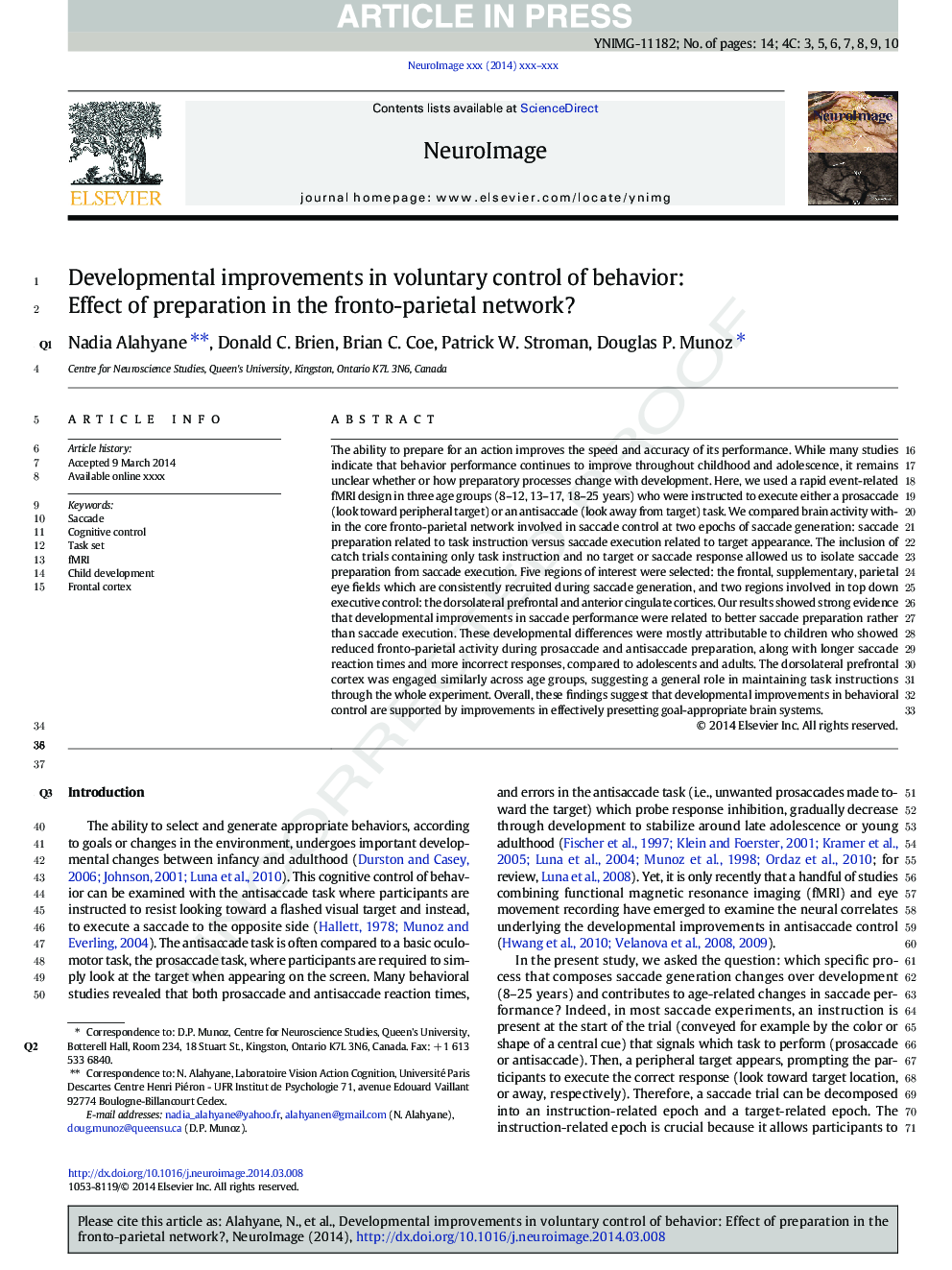| کد مقاله | کد نشریه | سال انتشار | مقاله انگلیسی | نسخه تمام متن |
|---|---|---|---|---|
| 6026894 | 1580908 | 2014 | 14 صفحه PDF | دانلود رایگان |
عنوان انگلیسی مقاله ISI
Developmental improvements in voluntary control of behavior: Effect of preparation in the fronto-parietal network?
ترجمه فارسی عنوان
پیشرفت های پیشرفت در کنترل داوطلبانه رفتار: تأثیر آماده سازی در شبکه های فوریتی
دانلود مقاله + سفارش ترجمه
دانلود مقاله ISI انگلیسی
رایگان برای ایرانیان
کلمات کلیدی
موضوعات مرتبط
علوم زیستی و بیوفناوری
علم عصب شناسی
علوم اعصاب شناختی
چکیده انگلیسی
The ability to prepare for an action improves the speed and accuracy of its performance. While many studies indicate that behavior performance continues to improve throughout childhood and adolescence, it remains unclear whether or how preparatory processes change with development. Here, we used a rapid event-related fMRI design in three age groups (8-12, 13-17, 18-25Â years) who were instructed to execute either a prosaccade (look toward peripheral target) or an antisaccade (look away from target) task. We compared brain activity within the core fronto-parietal network involved in saccade control at two epochs of saccade generation: saccade preparation related to task instruction versus saccade execution related to target appearance. The inclusion of catch trials containing only task instruction and no target or saccade response allowed us to isolate saccade preparation from saccade execution. Five regions of interest were selected: the frontal, supplementary, parietal eye fields which are consistently recruited during saccade generation, and two regions involved in top down executive control: the dorsolateral prefrontal and anterior cingulate cortices. Our results showed strong evidence that developmental improvements in saccade performance were related to better saccade preparation rather than saccade execution. These developmental differences were mostly attributable to children who showed reduced fronto-parietal activity during prosaccade and antisaccade preparation, along with longer saccade reaction times and more incorrect responses, compared to adolescents and adults. The dorsolateral prefrontal cortex was engaged similarly across age groups, suggesting a general role in maintaining task instructions through the whole experiment. Overall, these findings suggest that developmental improvements in behavioral control are supported by improvements in effectively presetting goal-appropriate brain systems.
ناشر
Database: Elsevier - ScienceDirect (ساینس دایرکت)
Journal: NeuroImage - Volume 98, September 2014, Pages 103-117
Journal: NeuroImage - Volume 98, September 2014, Pages 103-117
نویسندگان
Nadia Alahyane, Donald C. Brien, Brian C. Coe, Patrick W. Stroman, Douglas P. Munoz,
